Don’t Let The Airbnb Bed Bugs Bite: How to Safeguard Your Property
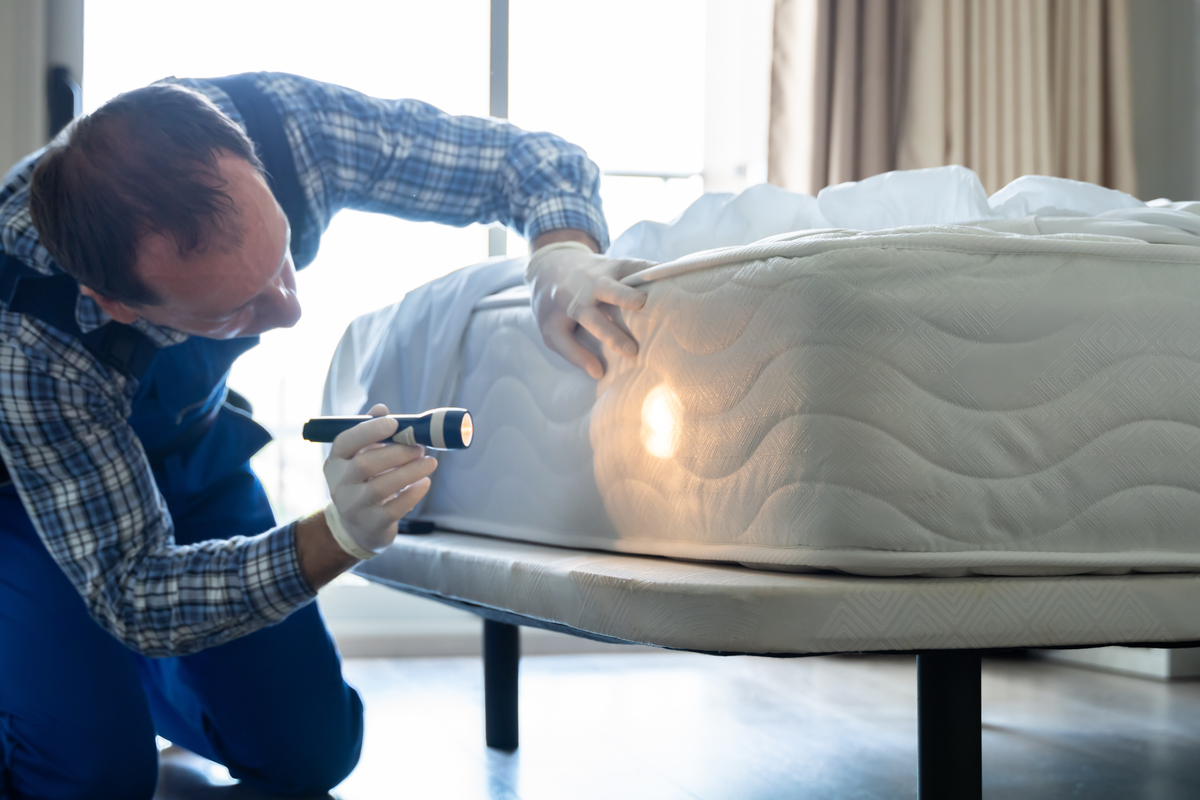
Bed bugs can turn a guest’s Airbnb vacation stay sour in an instant, Even worst, they’ll earn you instant bad reviews and impact your future business. Not to mention the headache it causes hosts when you need to get rid of an infestation.
An Airbnb hosts’ “Plan A” should always be to prevent infestations from the get-go, since bed bugs are difficult to spot and are often in hard-to-reach places.
Still, even if an Airbnb host orders every cleaning service off the menu, Airbnb bed bugs can still creep in. So, here is the ultimate guide to preventing and dealing with bed bugs, so that your Airbnb rental remains pest-free.

How to Identify Bed Bugs?
Summer season travel is underway and as travellers prepare to make unforgettable memories – few want to remember the bedbug infestation that took Paris by storm last year.
Wired reported that bedbug in France surged in 2023, with France’s Union Chamber of Insect Control data showing a 65 percent increase in pest control visits for the insects across the country, compared to 2022.
Bedbugs are small, oval, brownish parasitic insects that feed on the blood of humans and animals. Adult bedbugs have flat bodies about the size of an apple seed, but after feeding, their bodies swell and turn a reddish color.
They are primarily active at night and typically hide in cracks and crevices during the day.
Because sleeping guests are their food source, they’re usually found in pillows, bedding, mattresses, box springs, bed frames, and other furniture, making them difficult to detect and eradicate. Their bites can cause itching, welts, and allergic reactions, though they are not known to transmit diseases.
They are hard to get rid of because they can survive for many months without a blood meal. Effective control usually requires professional pest management and thorough cleaning.
Does Airbnb Have A Bed Bug Policy?
Airbnb does not have a particular bed bug policy. However, they do follow up on bed bug complaints on a case-by-case basis and take the issue very seriously. If your guests complain to Airbnb about bed bugs, they will most likely suspend your listing until you can produce proof that a professional exterminator has resolved the problem.
The bottom line for any Airbnb host, though, should be to act immediately when an infestation of bed bugs is reported. Having one bad review about bed bugs is bad enough, but having multiple reviews out in the Airbnb community could sink your Airbnb reputation and business altogether.
With that in mind, let’s explore how to prevent bed bugs from invading your rental property.
How Can I Prevent Bed Bugs In My Airbnb?
Unfortunately, there is no absolute way to prevent bed bugs from finding their way into the nooks and crannies of your Airbnb rental. However, there are a few best practices you can use as the first line of defense to avoid pesky bed bug bites.
1. Clean after every guest
There is a chance that an Airbnb guest brings bed bugs into your property. This is why it is especially important to clean your Airbnb rental thoroughly after every guest’s stay. You should at least wash linens and bedding at high temperatures and vacuum often.
Hiring a professional cleaning service for your rental property ensures high cleaning standards and thorough cleaning, keeping your Airbnb spotless and reducing the risk of bed bug infestations.
If managing a professional cleaning team seems like too much trouble, you might consider using vacation rental software to help you out. Vacation rental software, like iGMS, can:
- Automate and manage cleaning tasks in a fraction of the time.
- Share daily cleaning schedules
- Auto-assign cleaning tasks.
With iGMS, you can also:
- Use the PROtrack software to streamline your communication with your entire team
- Take advantage of the iGMS Channel Manager, Synchronized Inbox, and Multi-Calendar to put your property management on autopilot and eliminate double bookings.
2. Deep clean often
It’s important to deep clean your rental property every 3-4 months to ensure dirt does not build up over time.
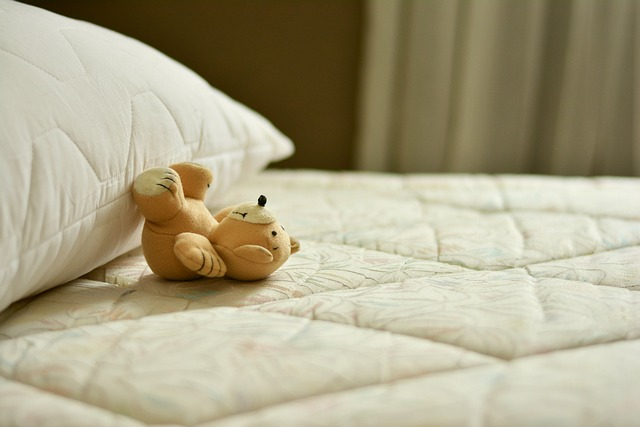
This includes shampooing any carpets, deep cleaning your mattresses and couches, and washing your curtains and rugs. It will also include more extensive dusting, vacuuming, and sanitizing of your renal space.
3. Fill up any cracks and gaps in walls and floors with foam sealant
Beg bugs are known for sneaking into your home through craps and gaps in your walls and hard flooring. So another good practice is to ensure these crevices are well sealed off.
This is easy to do with a foam sealant, which can just be sprayed or applied onto the cracks. You should be able to do this yourself, but you could also get an expert to do it for you for peace of mind.
4. Use a mattress cover
Because mattresses are one of the top spots for bed bugs to inhabit, using a mattress cover is one of the best preventative measures you can take.
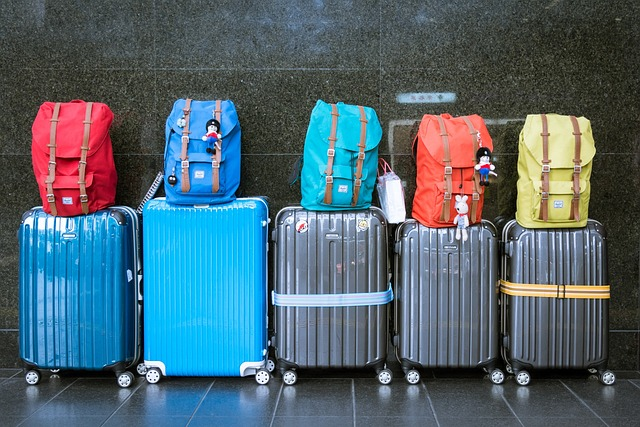
If guests bring bed bugs into your property through their luggage and other clothing, a good-quality mattress cover will prevent the bugs from setting up a new home in the mattress.
5. Opt for metal-based furniture
Metal surfaces deter bed bugs from crawling on them because it is a slippery surface. Opting for a metal bed frame and metal-based bedroom furniture is another excellent measure to keep the pests at bay.
Luckily, even if furniture has metal as a base, there are good-quality options available so that comfort is not compromised.
6. Offer luggage racks
Providing luggage racks for your guests is a smart idea because it means that your Airbnb guest is less likely to put their luggage on your beds.
This will help prevent your bed and furniture from getting infested if your guest brings bed bugs into your property.
7. Opt for wardrobes over drawers
When it comes to furnishing a property, one simple trick for Airbnb hosts is to opt for a wardrobe over a chest of drawers.
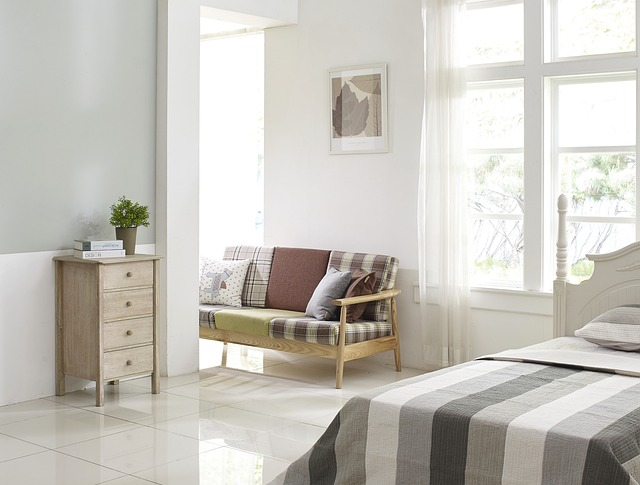
To reduce the likelihood of bed bugs, you will need to reduce spaces where they can thrive. Drawers provide more surface area and crevices for bed bugs to hide than a wardrobe, making it the less logical option when it comes to preventative measures.
8. Deal with any signs of infestations immediately
One of the most important ways to prevent a few bed bugs from turning into an infestation is to act immediately when you or your guest spots any signs of them. The longer you put it off, the more chance they have to spread.
How Can I Tell If My Short-Term Rental Has a Bed Bug Infestation?
There are a few signs to look out for to identify an Airbnb bed bugs problem. Here are the most common red flags to quickly identify if your home is infested:
- Guests complain about itchy bites
While it’s comforting to know that bed bugs are not likely to spread disease, they can, unfortunately, leave itchy welts when they bite your guests.
If your guests notify you of itchy bites showing up on their skin during their stay, it’s likely an Airbnb bed bugs problem.
- Red or dark stains on sheets
When bed bugs bite guests, they usually leave behind blood stains on the sheets. Also, when they are crushed into the mattress or sheets, their outer shell could leave dark marks as well.
Therefore, it’s important for you or your cleaning team to stay observant of these signs, as they might indicate the presence of bed bugs.
- A musty odor in the room
Bed bugs leave behind a musty odor when they infest a room. If you notice a new odor that wasn’t there before or one you can’t get rid of, it may be a good idea to do a thorough check to see if bed bugs are present.
- Live bed bugs
Of course, the most undeniable sign is if the property owner, cleaning staff, or Airbnb guests actually spot live bed bugs crawling around.
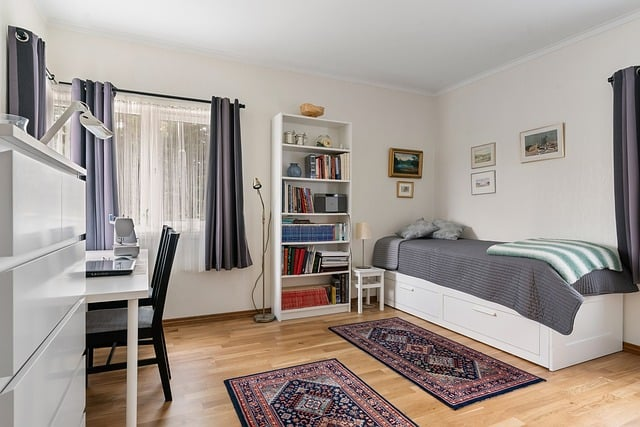
What Should I Do If My Property Has Bed Bug Infestations?
So the bed bugs have gotten past your defenses and now it’s time to go on the attack. When it comes to bed bug treatment and extermination, there are only a few steps to follow. But each part of the process is crucial for getting your property bedbug-free.
1. Cancel all immediate bookings
This is a tough step to follow, but it has to be done.
Canceling one or two reservations now to address a bed bug issue is better than risking future bookings due to bad reviews.
Be honest about the reason for the cancellation, offer to reschedule with a discount or an extra night’s stay, and emphasize that it’s for the guests’ safety, which can foster appreciation and loyalty.
2. Get rid of the mattress
Once bed bugs have invaded your mattress, the best thing to do is throw it out. The bed bugs and their eggs could be nestled deep in the fabric and it will be difficult to tell whether they’ve all been exterminated, even after treatment.
3. Vacuum all surfaces
Thoroughly vacuum all surfaces in the bedroom, including carpets, hardwood floors, the box spring, the bed frame, and any other bedroom furniture and storage space to immediately start getting rid of any bugs on the surfaces.
4. Hire a professional exterminator
Hiring professional pest control services ensures proper and safe treatment of bed bugs in living space. Avoid the risks associated with DIY methods, dangerous chemicals and not getting rid of the infestation.
While typical extermination costs range from $300 to $500 per room, bed bugs and termites can cost up to $5,000 to eliminate.
5. Replace or deep clean bedding
If you are able to, replacing your bed linens, covers, and pillows may be the best idea to ensure the bugs do not linger.
If this is not feasible, you should at least wash linen and other bedding at the highest possible temperature to be as sure as possible that you’ve gotten rid of the bed bug problem.
Should I Give My Guest a Refund If My Airbnb Has Bed Bugs?
Because Airbnb does not set out a clear bed bugs policy, the refund is up to the Airbnb hosts’ discretion. It is strongly advised, however, that Airbnb hosts give their guests a full refund if they experienced bed bugs in your Airbnb rental.
This experience would not be pleasant for guests, and offering a full refund is the first step to remedy the situation.
Can My Guests Sue Me For Having Bed Bugs in My Airbnb?
The basic obligation of a property owner or Airbnb host is to provide a sanitary, liveable space for guests that will not harm their wellbeing. So, if a guest gets bitten by bed bugs, they are technically able to sue you for violating this agreement.
A guest is entitled to find themselves a bed bug lawyer and may sue for compensation for the pain and suffering caused, the money spent on medical expenses, and the damage to their belongings.
So, it’s also important to make sure your insurance policies cover your short-term rentals in the case of a bed bug dispute.
The main takeaway, though, is that prevention is better than cure, and Airbnb hosts should try their best to prevent a bed bug infestation before it becomes a real problem.





![Your Monthly iGMS Roundup [February 2020]](/content/images/size/w600/wordpress/2020/02/igms-roundup-feb-2020-cover.png)

